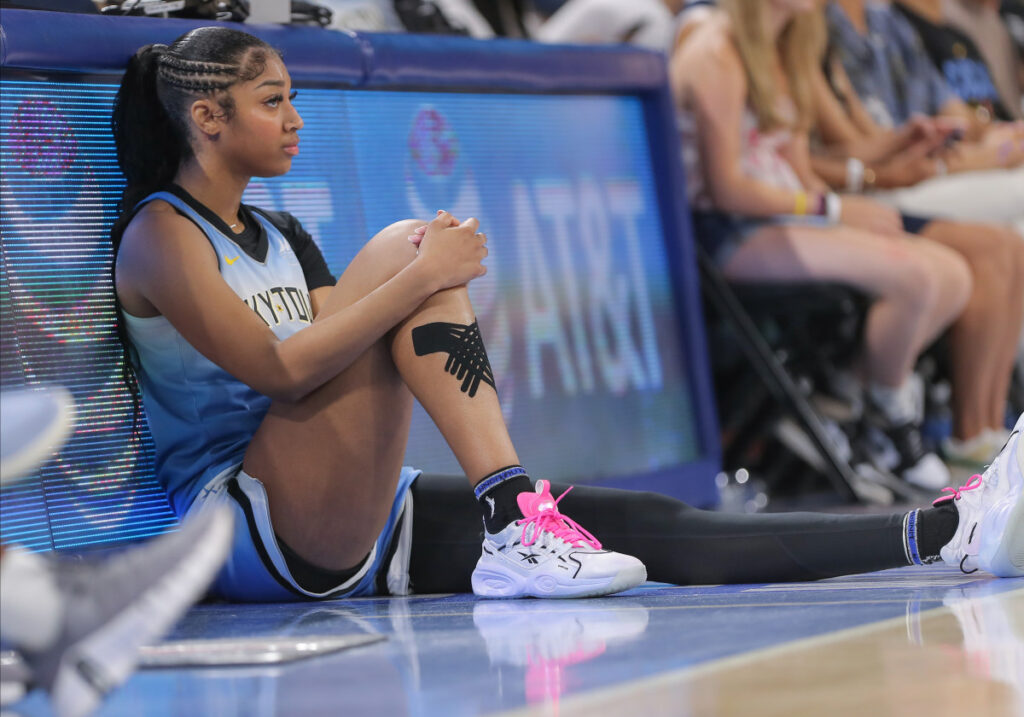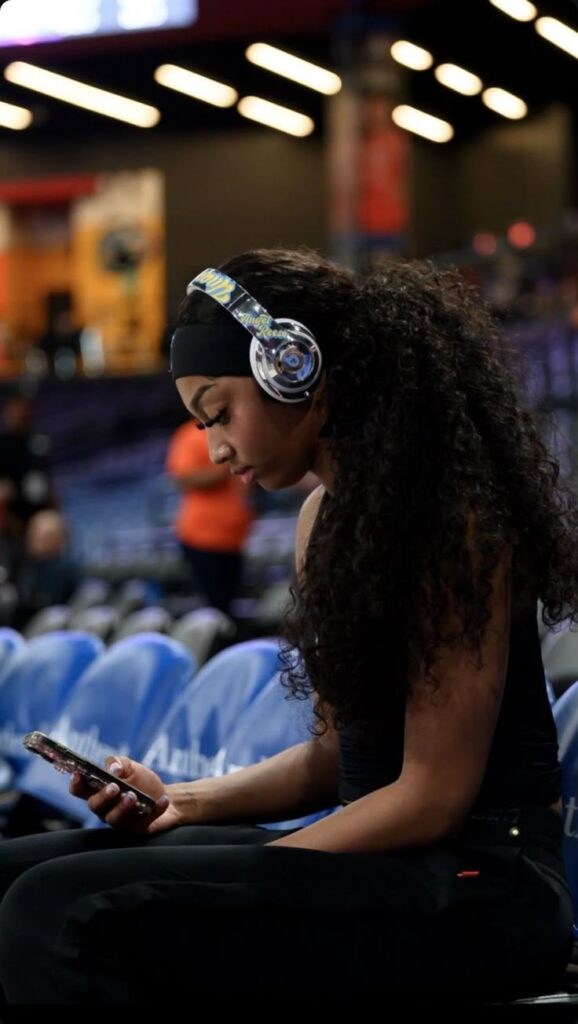Angel Reese: Talent, Beauty, and the Battle Against Bias
Angel Reese – the name that is making waves not only on the basketball court but also on all social media platforms, sparking debates that reveal more about our society’s judgment patterns than about the young athlete herself. Standing at the center of a whirlwind of opinions, criticism, and praise, she has become a polarizing figure whose every move is scrutinized through the unforgiving lens of public opinion that seems determined to either elevate her to unprecedented heights or tear her down to nothing.

The question that continues to dominate conversations across sports forums, social media platforms, and basketball analysis shows is whether Angel Reese represents genuine talent worthy of recognition or simply another media-manufactured phenomenon designed to capture attention and generate revenue streams. Her supporters argue passionately that she possesses exceptional basketball skills, demonstrating court vision, rebounding prowess, and offensive capabilities that set her apart from her contemporaries in ways that traditional statistics and highlight reels cannot fully capture or convey to skeptical audiences.
Critics, however, maintain their stance that Angel Reese’s abilities have been systematically overrated by a sports media ecosystem that prioritizes marketability, social media engagement, and narrative-driven storylines over pure athletic merit and fundamental basketball excellence. They point to specific games, statistical comparisons with other players, and what they perceive as inconsistent performances as evidence supporting their argument that the hype surrounding her career trajectory far exceeds her actual contributions to the sport.
Beyond the basketball court, discussions about Angel Reese inevitably drift toward conversations about her physical appearance, creating another battlefield where opinions clash with surprising intensity and revealing uncomfortable truths about how society evaluates female athletes. Some observers celebrate her natural beauty, confident demeanor, and magnetic presence that transcends traditional athletic boundaries, arguing that her appeal extends far beyond basketball and into realms of fashion, entertainment, and cultural influence that few athletes successfully navigate.

Conversely, other voices in the conversation dismiss these attributes entirely, claiming that Angel Reese possesses no exceptional physical qualities and that any attention she receives based on appearance represents shallow, misguided focus that detracts from legitimate athletic discourse and evaluation. This perspective suggests that discussions about her looks are either fabricated by overzealous fans or represent a collective delusion that prevents objective assessment of her true value as a basketball player and public figure.
The intensity of these debates raises profound questions about the underlying biases that shape public perception of female athletes, particularly those who challenge conventional expectations about how women in sports should look, behave, and present themselves to the world. Angel Reese’s confident personality, outspoken nature, and willingness to embrace attention that comes with her rising profile seem to trigger responses that go beyond typical sports criticism and venture into territory that feels personally charged and emotionally invested.
Social media platforms have amplified these discussions to levels that previous generations of athletes never experienced, creating echo chambers where supporters and detractors can reinforce their existing beliefs while rarely engaging in genuine dialogue that might bridge the gap between opposing viewpoints. The algorithms that govern these platforms tend to promote content that generates strong emotional responses, whether positive or negative, meaning that nuanced, balanced discussions about Angel Reese’s actual abilities and character often get buried beneath waves of extreme opinions that prioritize engagement over understanding.
What emerges from this chaotic landscape of opinions is a troubling pattern that suggests many critics may be responding not just to Angel Reese’s basketball performance or public persona, but to something deeper and more uncomfortable about their own expectations and prejudices regarding young Black women in sports. The harshness of some criticism, the personal nature of attacks on her appearance, and the seeming determination to diminish her accomplishments point toward biases that extend far beyond legitimate sports analysis and venture into territory that reflects broader societal issues.
Perhaps the most revealing aspect of the Angel Reese phenomenon is how it forces observers to confront their own perspectives and examine whether their opinions are based on objective evaluation of her skills and character or influenced by preconceived notions about how female athletes should behave, look, and carry themselves in public spaces. The passion with which people defend their positions on both sides suggests that this debate represents something larger than one individual’s career trajectory, touching on fundamental questions about fairness, representation, and the standards by which we judge athletic excellence.
As Angel Reese continues to develop her career and navigate the complex landscape of professional sports, social media scrutiny, and public expectations, her story serves as a compelling case study in how modern athletes must manage not only their performance on the court but also their image in digital spaces where opinions form rapidly and spread instantaneously. The ultimate question may not be whether she possesses exceptional talent or beauty, but whether we as observers can move beyond our biases to evaluate her fairly and allow her the space to grow, evolve, and define her own legacy on her own terms.